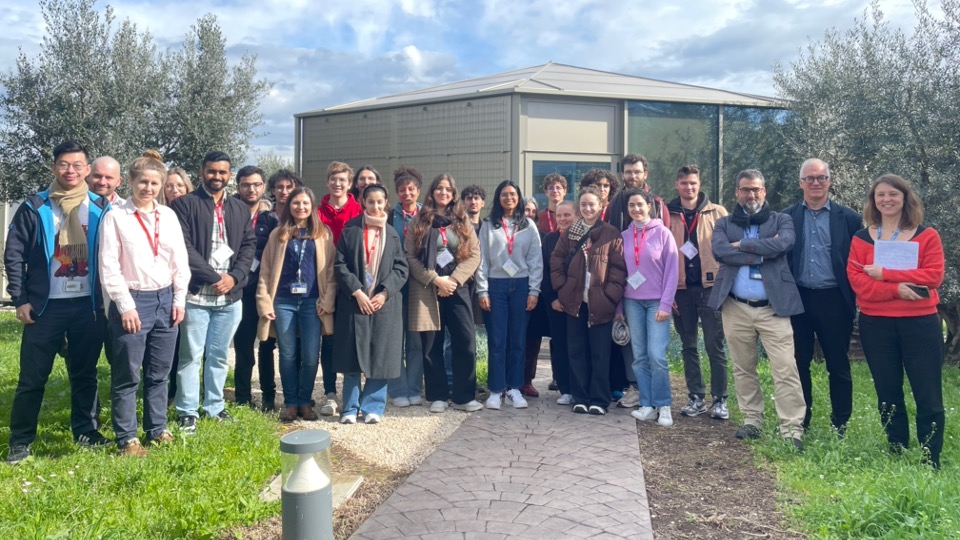
ESRIN Science Hub Challenge to unveil the secrets of Earth Dynamic Systems
- Post by: Sabrina Lodadio
- March 10, 2024
The ESRIN Science Hub hosted the second edition of the Earth System Science Hub Workshop during the last week of February 2024. This time, the workshop format was transformed into a research challenge! In Frascati, a group of 16 PhD students, led by Professor Helène Chepfer from the Sorbonne Universite Paris, had the opportunity to use various EO datasets to answer scientific questions and link their research to a societally-relevant use case. The final outcome: a compelling story illustrated by EO and hosted on the NASA-ESA-JAXA EO Dashboard. The challenge aimed to explore the scientific potential of multivariate datasets provided by ESA’s Deep Earth System Data Laboratory (DeepESDL), offering participants a tool to understand Earth dynamics using a variety of global environmental and climate datasets. The workshop was also open to online Earth observation enthusiasts who expressed their interest in a competition to promote the best web story on the NASA-ESA-JAXA EO Dashboard.
Full week experience at ESRIN Science Hub
During the week from 26 February to 1 March 2024, the students not only had the opportunity to get their hands on scientific problems, but also to enhance their knowledge of EO missions and science by attending presentations delivered by ESA mission managers and EO experts who gave insights into the challenges of operating space missions, from Earth Explorers to the Sentinel series, and presented some of the most important scientific results enabled by the data. The workshop was opened by the Head of the ESRIN Science Section, Diego Fernandez, who outlined the role and importance of the Science Hub and the opportunities that await young researchers at ESA. Science Hub members also presented their research activities and gave the students a flavour of what it means to work at the Science Hub. The workshop ended with visits to the ESRIN Visitor Center and the Φ-Experience, a captivating exhibition area where interactive displays illustrate the role of satellite mission data to monitor global change. The detailed agenda of the event is available here.
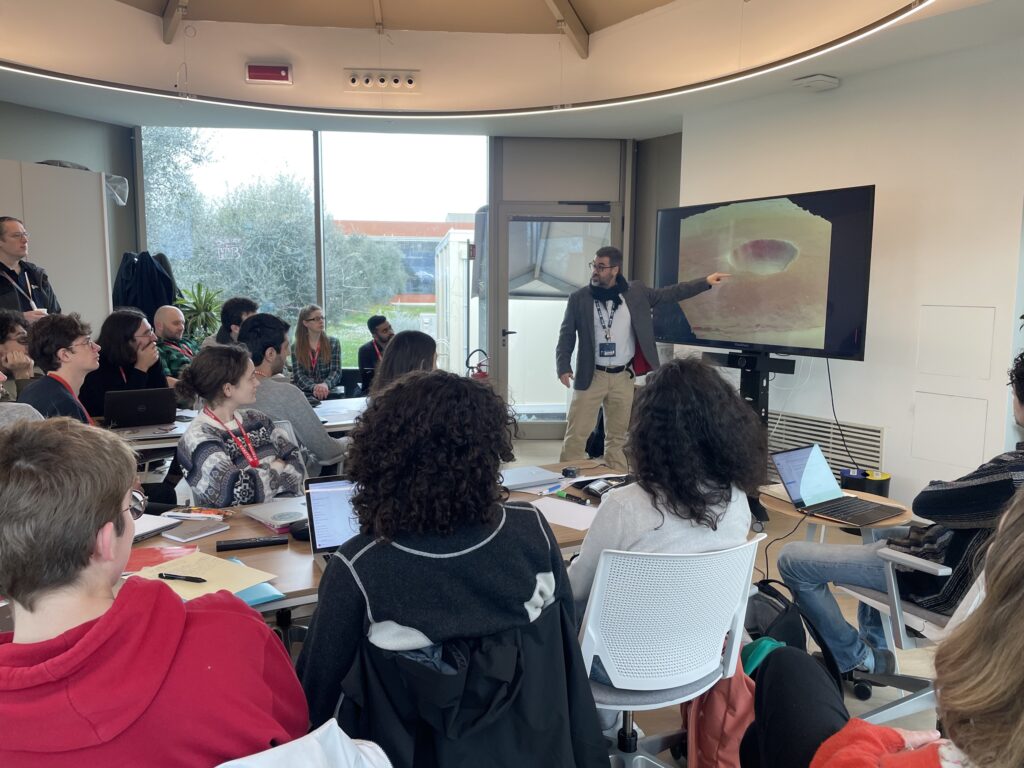
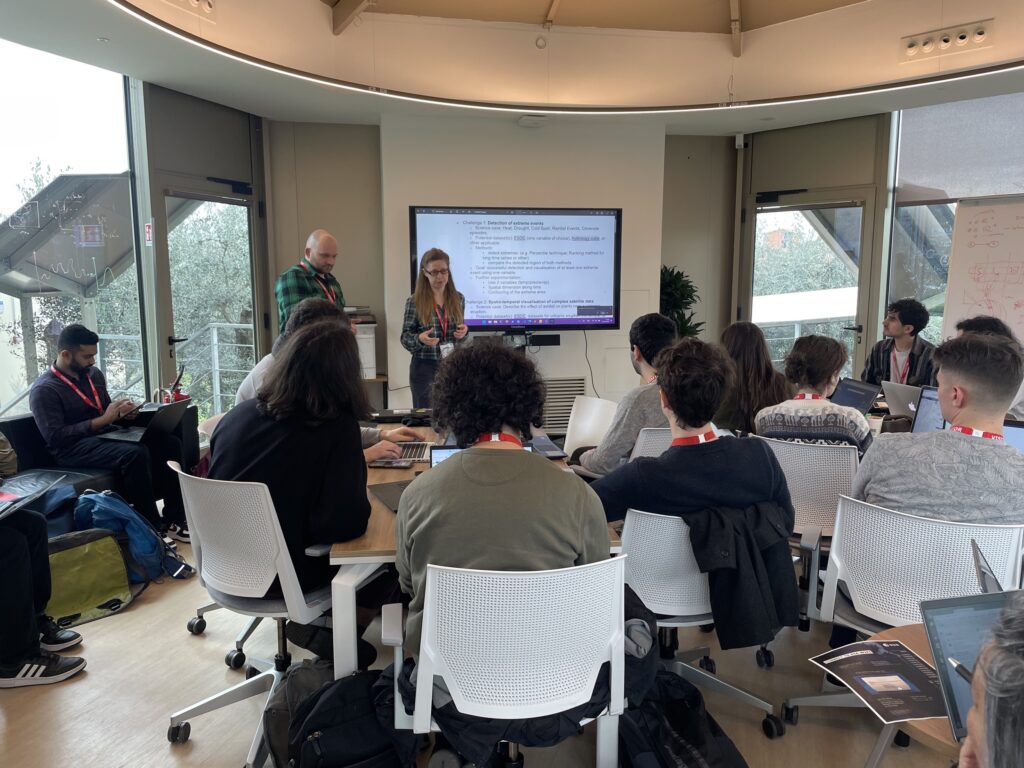
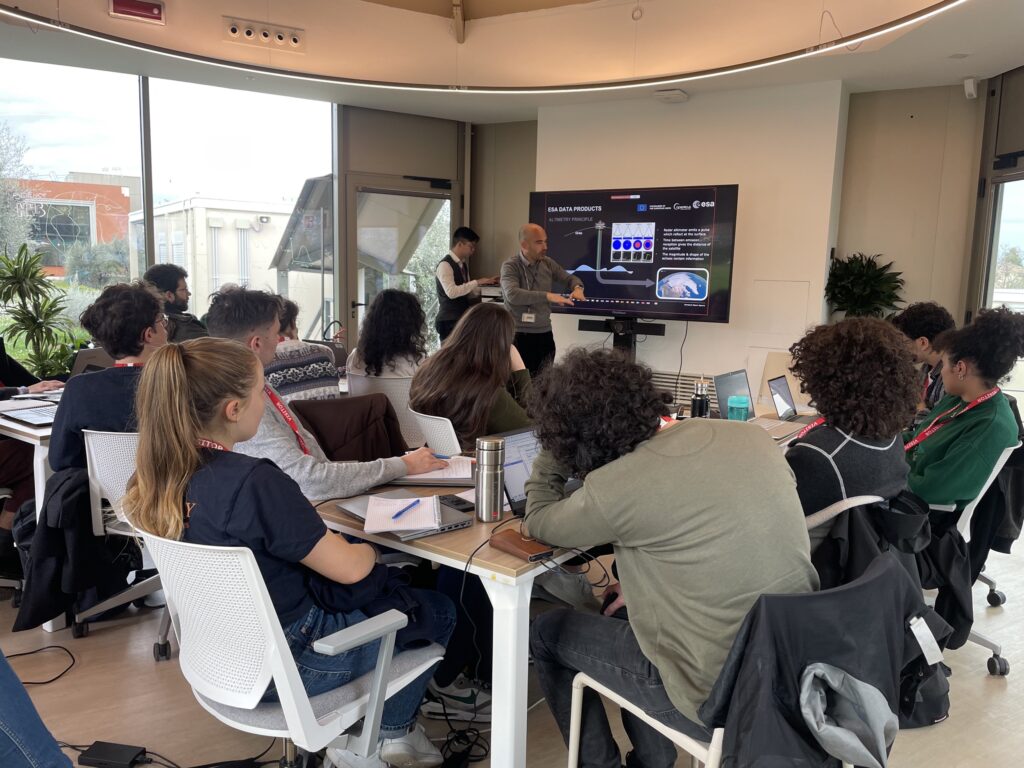
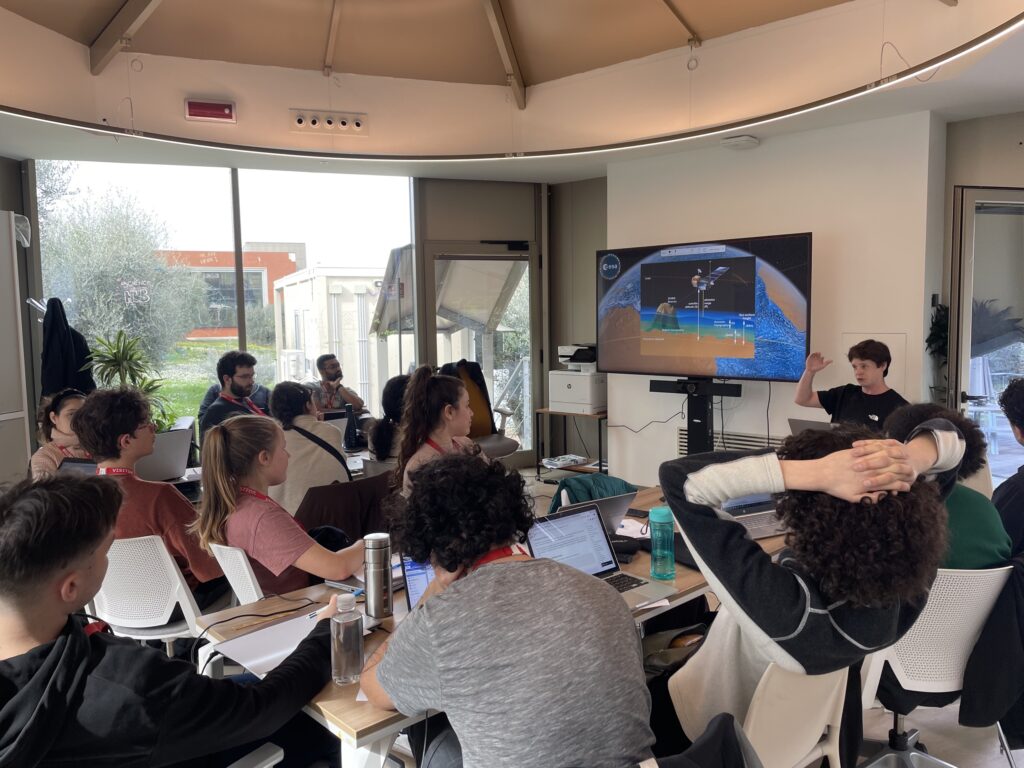
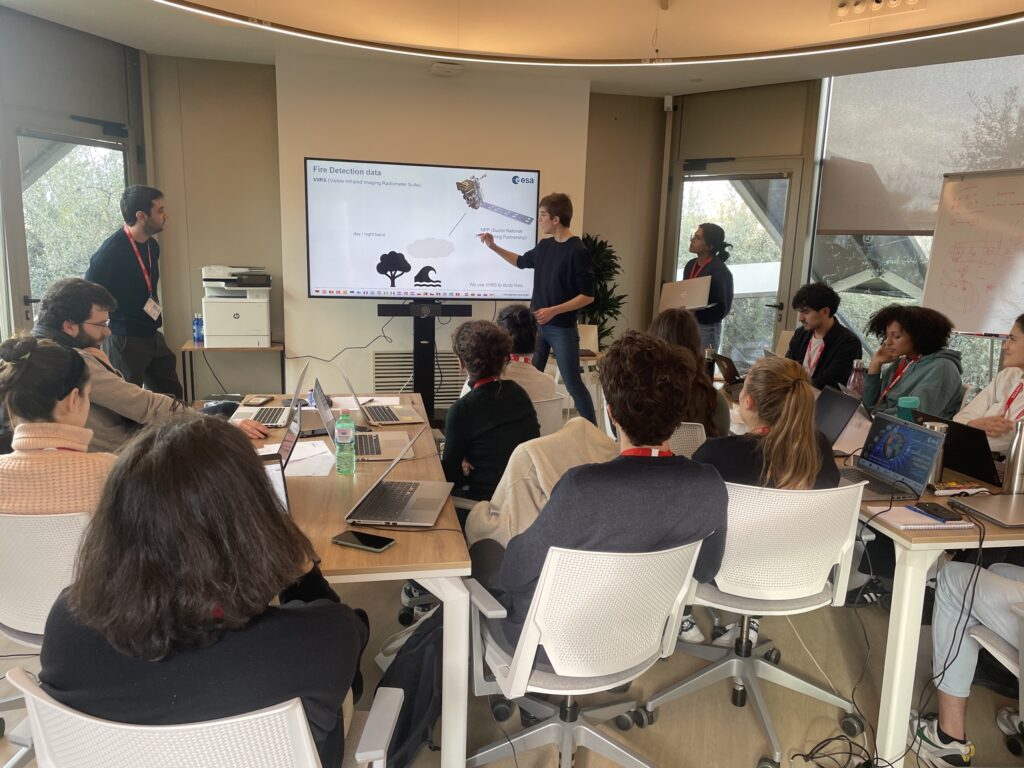
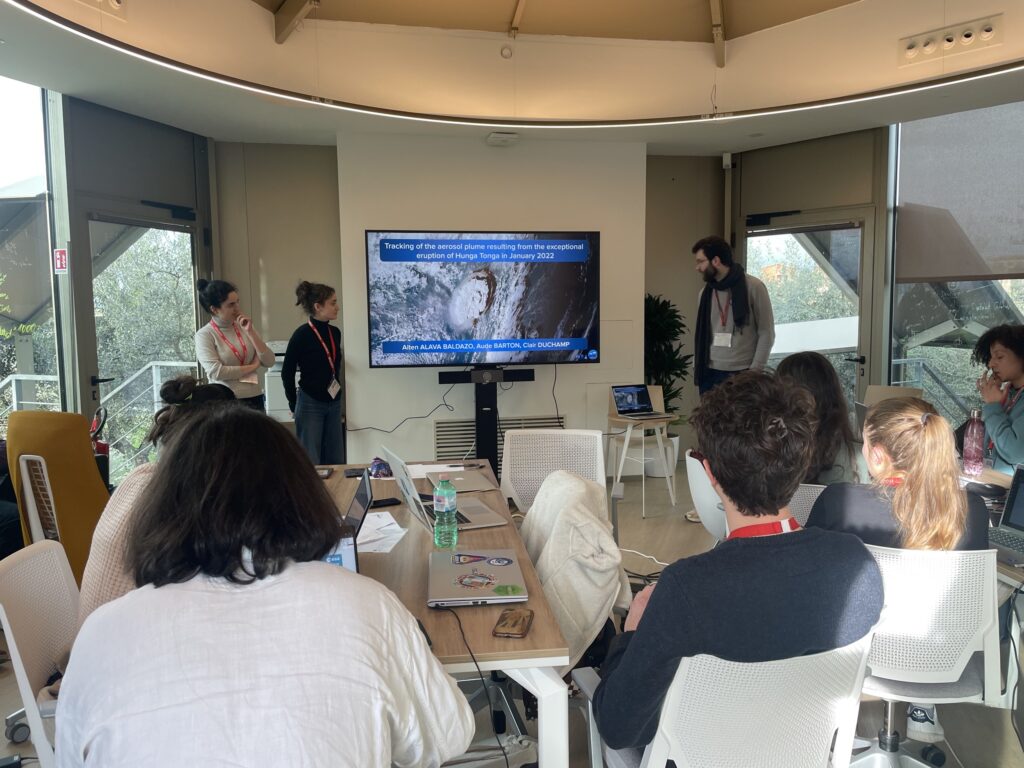
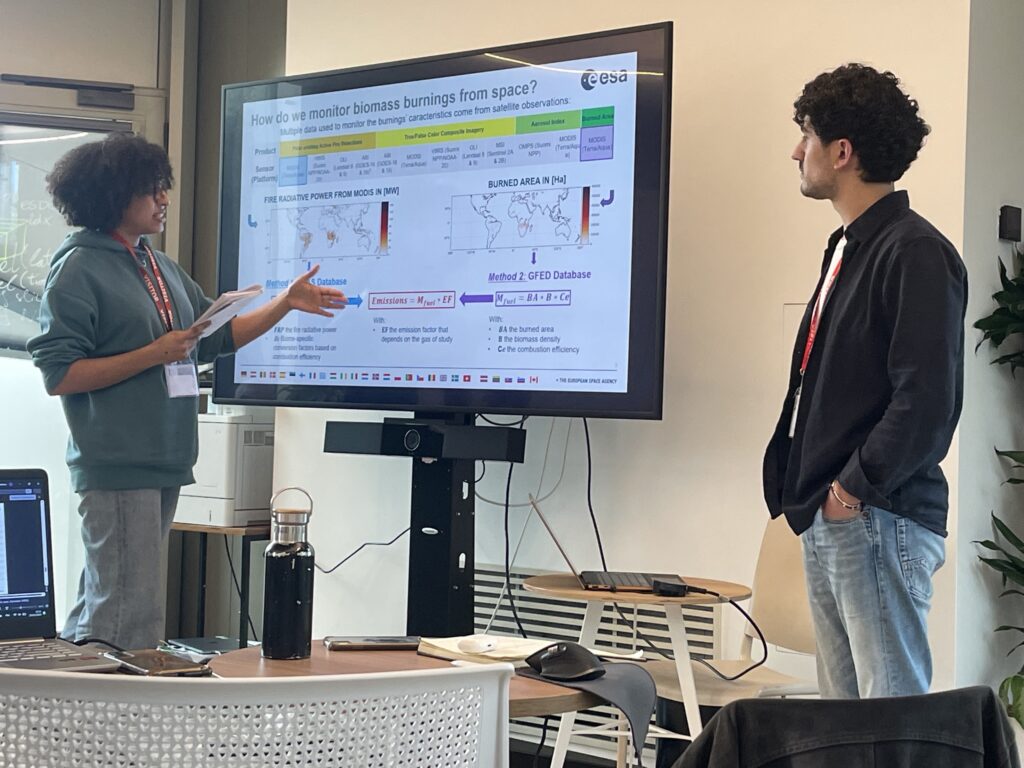
Diving into DeepESDL’s Jupyter Lab and exploring its potential
The main goal of the week was to create a compelling narrative that would eventually be shared with a global audience via the NASA-ESA-JAXA EO Dashboard. The students were supported by a science team from University of Leipzig: Martin Reinhardt and Karin Mora illustrated some of the concepts of multivariate data analysis for extreme event detection, time series interpolation techniques, spatial gap filling, dimension reduction and classification clustering, among others. All of the methods were developed in a single platform: Deep Earth System Data Lab (DeepESDL) and Tejas Morbagal Harish of Brockmann Consult supported students with technical insights related to the Jupyter notebooks on which the students developed their applications.Similar to last year, the Earth System Science Hub Challenge continues to foster an atmosphere conducive to collaboration and knowledge sharing and opens opportunities for collaboration for universities with the ESRIN Science Hub.
What’s next?
Returning to Paris, the students take home more than just knowledge and new contacts at ESA. They are also provided continued access to DeepESDL through ESA sponsorship ensured via the Network of Resources, enabling them to use the platform and data for their research.
With this workshop completed, the Science Hub is looking forward to the next one, in May 2024, with the University of Edinburgh.

